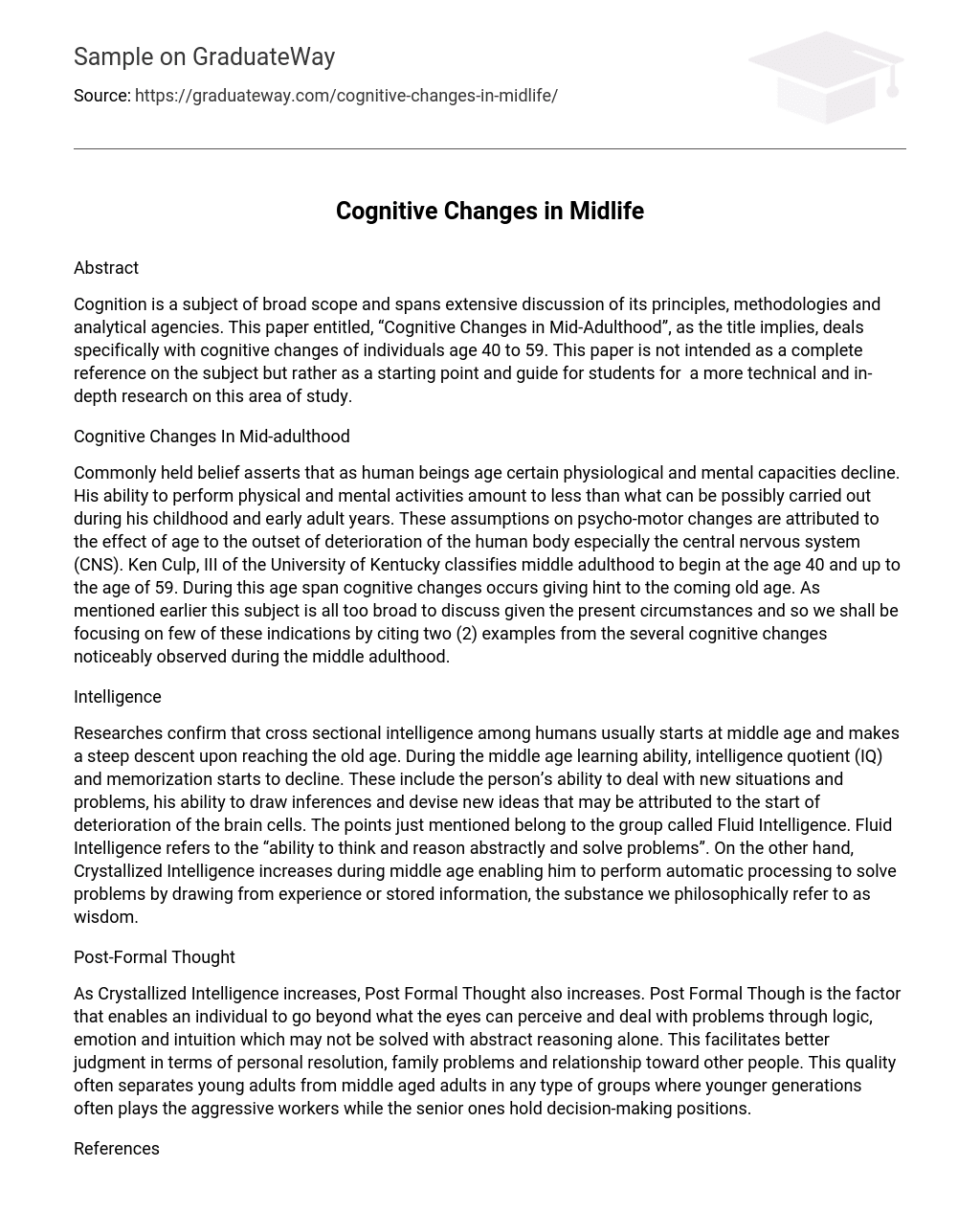Abstract
Cognition is a subject of broad scope and spans extensive discussion of its principles, methodologies and analytical agencies. This paper entitled, “Cognitive Changes in Mid-Adulthood”, as the title implies, deals specifically with cognitive changes of individuals age 40 to 59. This paper is not intended as a complete reference on the subject but rather as a starting point and guide for students for a more technical and in-depth research on this area of study.
Cognitive Changes In Mid-adulthood
Commonly held belief asserts that as human beings age certain physiological and mental capacities decline. His ability to perform physical and mental activities amount to less than what can be possibly carried out during his childhood and early adult years. These assumptions on psycho-motor changes are attributed to the effect of age to the outset of deterioration of the human body especially the central nervous system (CNS). Ken Culp, III of the University of Kentucky classifies middle adulthood to begin at the age 40 and up to the age of 59. During this age span cognitive changes occurs giving hint to the coming old age. As mentioned earlier this subject is all too broad to discuss given the present circumstances and so we shall be focusing on few of these indications by citing two (2) examples from the several cognitive changes noticeably observed during the middle adulthood.
Intelligence
Researches confirm that cross sectional intelligence among humans usually starts at middle age and makes a steep descent upon reaching the old age. During the middle age learning ability, intelligence quotient (IQ) and memorization starts to decline. These include the person’s ability to deal with new situations and problems, his ability to draw inferences and devise new ideas that may be attributed to the start of deterioration of the brain cells. The points just mentioned belong to the group called Fluid Intelligence. Fluid Intelligence refers to the “ability to think and reason abstractly and solve problems”. On the other hand, Crystallized Intelligence increases during middle age enabling him to perform automatic processing to solve problems by drawing from experience or stored information, the substance we philosophically refer to as wisdom.
Post-Formal Thought
As Crystallized Intelligence increases, Post Formal Thought also increases. Post Formal Though is the factor that enables an individual to go beyond what the eyes can perceive and deal with problems through logic, emotion and intuition which may not be solved with abstract reasoning alone. This facilitates better judgment in terms of personal resolution, family problems and relationship toward other people. This quality often separates young adults from middle aged adults in any type of groups where younger generations often plays the aggressive workers while the senior ones hold decision-making positions.
References
- Transition from Early Adulthood to Middle Age. Retrieved May 1, 2009, from the Mesa Community College: http://www.mc.maricopa.edu/dept/d46/psy/dev/Spring02/young_adults/middleage.html
- Culp III, Ken (No date indicated). Building a Multi-Generational Volunteer Base: Understanding How Human Development Impacts Volunteer Service. Journal of Extension. Retrieved: May 1, 2009, from http://www.joe.org/joe/2009february/a5.php
- Feldman,R. S., Meyer, C. J. (March 1, 2005). Development Across the Life Span (4th Edition). USA. Prentice Hall.





